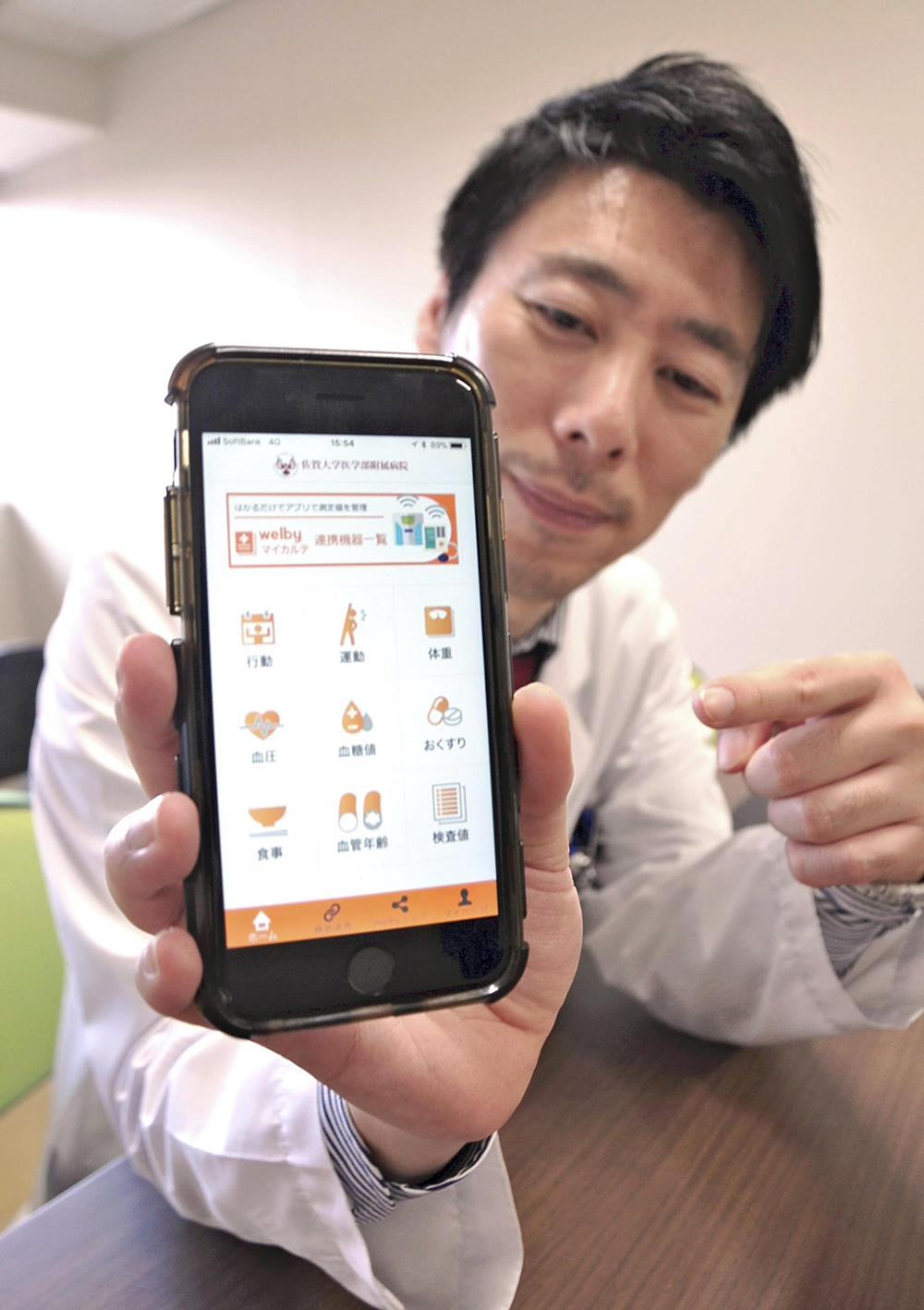More hospitals in Japan use apps to watch over patients at home

The Japan News/Asia News Network
SAGA, Japan — An increasing number of medical institutions are using smartphone apps to help improve the lifestyles of patients suffering from diabetes and heart failure while also providing them with better treatment.
These apps encourage patients to keep records at home on such factors as their meals and weight, which can be shared with doctors, dietitians and other medical workers.
These tools are expected to serve as a “watcher” to keep an eye on patients even when they are not seeing doctors.
Last fiscal year, Saga University Hospital’s department for liver ailments, diabetes and endocrine disorders introduced an app called “Welby My Karute” for patients with fatty liver and other disorders of the organ. “Karute” means medical records in Japanese.
Developed by Welby Inc., a Tokyo-based IT firm to support healthcare management, the app can be downloaded for free.
It encourages patients to keep records on factors such as weight, blood pressure and blood sugar levels, in addition to taking pictures of daily meals with their smartphones. This data can be shared with computers at the hospital in Saga, helping doctors, nurses and dietitians provide better treatment and advice to improve patients’ lifestyles. The app can also enable medical workers to send messages to patients.
At the hospital, patients used to be asked about such things as their weight and dietary habits when they saw doctors about once a month. However, it was often the case that patients neglected to undergo such regular checkups because many of them are in their 40s and 50s and busy with work.
These patients often failed to do so also because they lack noticeable symptoms, particularly in the early stages of the disease.
However, if they don’t have checkups for an extended period, diabetic patients could suffer retinal bleeding or gangrene, while those with liver disorders could develop cirrhosis or cancer. To prevent these serious outcomes, it is essential for patients to manage their lives day-to-day.
“We hope that if patients can feel they are being kept an eye on even when they’re not seeing doctors, that will encourage the patients to continue their treatment,” said Hirokazu Takahashi, a doctor at the hospital.
Isahaya Memorial Hospital in Isahaya, Nagasaki Prefecture, which is known as an institution that focuses on diabetes treatment, also introduced “Welby My Karute” in March. “[The app] makes it easier for patients to keep records every day because it’s more convenient than writing things down by hand,” director Yoshihiko Yamaguchi said. “We can also provide more specific advice on their lifestyles by presenting graphic materials such as charts and photos.”
Meanwhile, Kyushu University Hospital in Higashi Ward, Fukuoka, developed an app for patients with heart failure who receive care at home, in cooperation with Hitachi Ltd. and Hokkaido University last year.
The app allows patients and the hospital to share data they input, such as pulse, blood pressure, meals, sleep and whether they take drugs appropriately. It also has a warning function to advise them to visit the hospital as soon as possible when it suspects that the patients’ condition is getting worse based on this data.
The hospital plans to start clinical research for the new system as early as this summer.